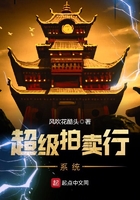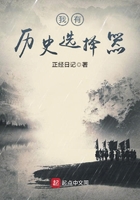The customary law of Russia, like the old German jurisprudence, established a difference between betrothal and marriage. Both are considered to be legal acts, and both ought therefore to have distinct legal effects. Betrothal is legally concluded as soon as the two families have come to an agreement, first, as to the amount of the marriage expenses each party is to bear, and secondly, as to the time fixed for the wedding. The expenses are of different kinds: they comprise, first, the "kladka" of the bridegroom, a sort of pretium emptionis paid to the bride's father, and the dowry which the bride receives from her family. Then come the presents to be made by each party to the parents of the bride and those of the bridegroom, and the amount of expense which the bridegroom has to incur on the occasion of the nuptial feast. All these are regularly discussed and settled by a sort of verbal agreement, known among the peasantry by the name of "riad." In ancient Russia when agreements of this kind were entered into even by the higher classes, the "riad" was always put down in the form of a written contract, and this is still occasionally done in the northern Governments of Russia, especially in that of Archangel. Betrothal is considered to be legally concluded at the moment when the two parties, that of the bridegroom and that of the bride, have shaken hands. It is not without reason that i insist on the fact that it is this indefinite expression of the two parties which concludes the act of betrothal. I want to impress on your minds that the presence of the bridegroom's father is not considered necessary. An outsider, called "Svat," may be authorised by the father to speak and act for him in a contract of this sort.
As soon as the ceremony of shaking hands is over neither of the contracting parties can break the engagement without incurring the obligation of pecuniary compensation for the wrong he does to the other party by his breach of contract. This compensation is of two different kinds: the one seems to have rather a moral, the other a purely monetary or material origin.
If the bride's party breaks the contract, the bridegroom and his family consider themselves injured in their honour. If, however, the breach of promise has been made by the bridegroom, the case is more serious. Then it is not only the honour of the bride that suffers, but also the material interests of the family, since a bride rejected by the man whom she was on the point of marrying, will generally experience great difficulty in finding another suitor. Such being the case, the customary court of the village usually accords to the party aggrieved the right to demand a pecuniary compensation "for the loss of honour the bride is supposed to have sustained" ("sa beschestic," say our peasants).
In case security has been received for a bridegroom's performance of his promise by a pledge or by the partial payment of the money which he owes to the bride's father, the question of compensation is easily settled, as the family of the bride retain for her own use the money already received; but if no payment has been made, the court must decide the amount to be paid. It very seldom happens that the sum demanded exceeds thirty roubles, at least, in the provinces of Great Russia. No extenuating circumstances are admitted on this occasion by the Court. A father leaving once declared that he was drunk when he gave his consent to the proposed marriage of his son, received no other answer but this:
"You may be drunk, but you must be clever" (bud pyan da umen).
The breach of contract may have two different results: one, that which I have just mentioned, a compensation in money for the loss of honour; as to the other, I have already stated that the contract of betrothal contains certain engagements as to the amount of the pretium emptionis, of the dowry and of the different expenses to be incurred by each party on the occasion of the marriage. If certain of these engagements have been partly fulfilled before the breach of promise, the wronged party has the right to demand the restitution of the money which had been spent; the bridegroom receives back the presents which he has made to his bride, and the bride those given to the bridegroom.
The Courts uniformly recognise the necessity for such mutual restitution, the only exception being when the money already paid serves to constitute the amount of compensation to either party for the wrong inflicted by the loss of honour.
The contract of marriage which follows that of betrothal, cannot at the present time be dissolved; but we should be mistaken if we inferred from this fact that this indissolubility of marriage has always been recognised by the common law of Russia. Though the peasants are now known to use the following aphorisms: "Marriage is known but not unmarriage;" "A bad pope may marry you, but even a good one cannot unmarry you," the case was quite different in the past. Not longer ago than the end of the eighteenth century the Cossacks of the Don practiced divorce.
A husband and wife who did not wish to live together any longer, appeared before the popular assembly and made the following declaration. "This woman is no longer my wife;" "this man is no longer my husband." "Be it so," was the answer of the assembly, and the marriage tie ceased to exist. During the sixteenth century husbands in Great Russia were still accustomed to grant their wives full liberty to contract a new engagement, or, at least, to live apart from their legal lords. An archbishop of Novgorod, Theodosius, bitterly complained of this practice. Up to the middle of the eighteenth century the Russian clergy dissolved the marriage bond very often for no other reason than that of incompatibility of temper, this incompatibility appearing in the dissolute life of either husband or wife.















